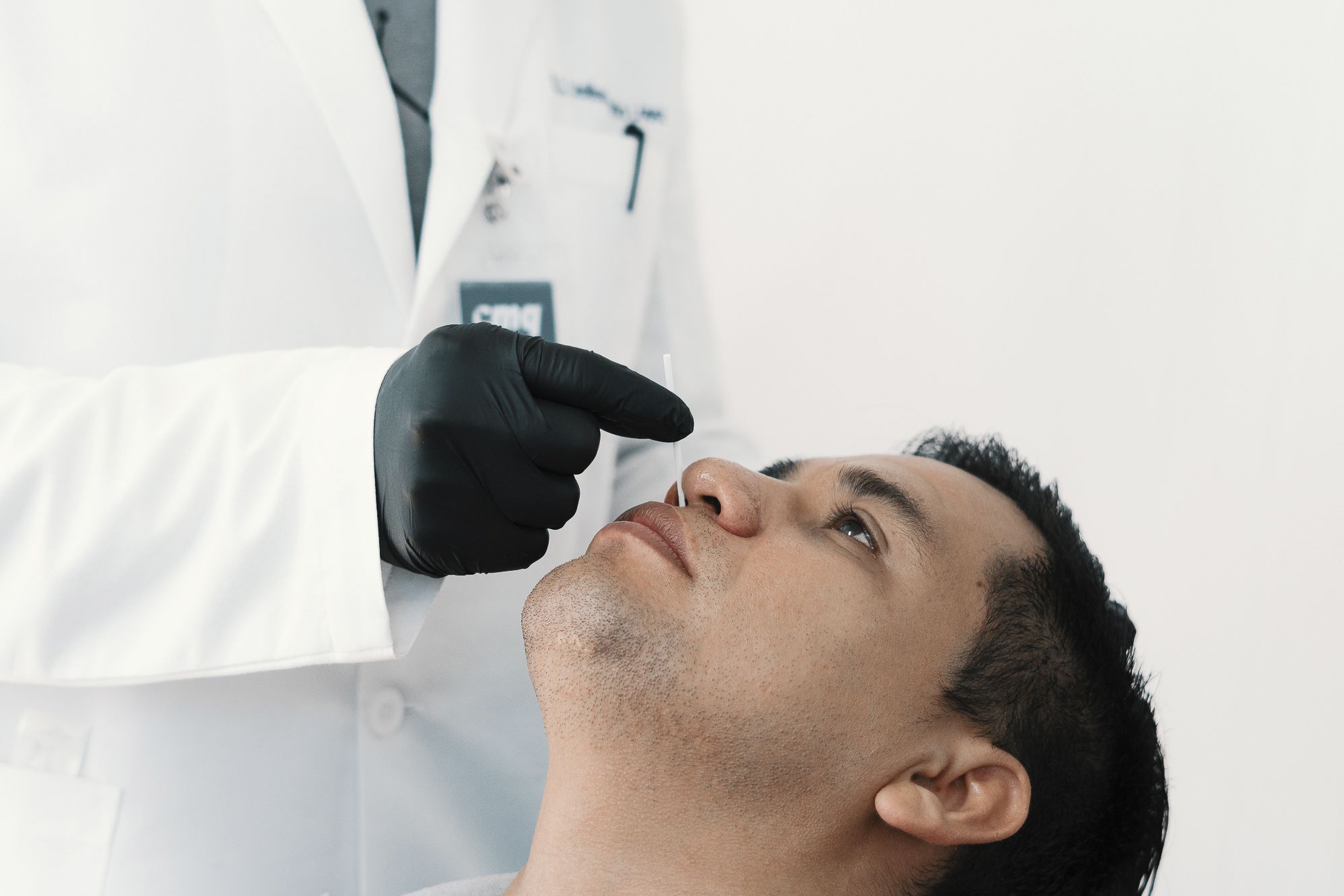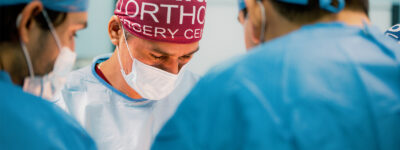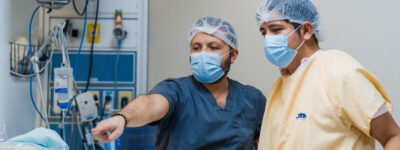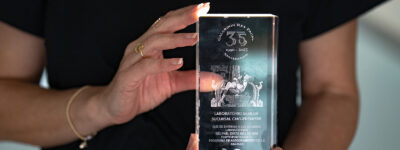Coronavirus test in Puerto Vallarta: Effective test options to detect a Covid-19 infection
Here you will find: Types of COVID-19 tests | Test results | Testing sites in Puerto Vallarta | FAQs
According to Tedros Adhanom, Director-General of the World Health Organization (WHO), there are several vaccines that are currently on the Phase 3 efficacy trial. Hopefully, one of these vaccines might be effective to prevent coronavirus infections in the near future. However, in the meanwhile, the only weapons that we have available to stop this disease are Public Health measures that have proven to be effective over time. In fact, this is why Mr. Adhanom pronounced his famous phrase, “test, test, test”, in which he stated and acknowledged that coronavirus tests are essential to fight and contain this pandemic. According to his statements, Covid-19 tests are of vital importance because:
- They help us identify positive cases at an early stage.
- Identifying positive cases at an early stage enables us to quarantine infected individuals, thus stopping the spread of this disease.
- When a positive case is identified, contact tracing can be performed to locate people who might have been exposed to this virus. Subsequently, individuals who are considered at high risk of being infected can be quarantined to avoid further contacts.
- Finally, early identification of positive cases helps to prevent deaths, as infected individuals are able to get the needed medical care.
As we can see, coronavirus tests are our best option to stop the spread of this pandemic. Due to their importance, the Food and Drug Administration (FDA), has approved the following test for Covid-19 detection and diagnosis:
- Covid-19 Viral tests, also known as molecular tests or RT-PCR tests.
- Covid-19 Antigen tests.
- Covid-19 Antibody tests, also known as rapid tests or serology tests
Types of Coronavirus tests – Coronavirus test in Puerto Vallarta
| Tests for coronavirus detection and diagnosis | Covid-19 Antibody test; detection of antibodies produced in response to coronavirus |
|---|---|
Currently, there are two types of tests that can detect and diagnose a coronavirus infection: the viral test (RT-PCR test) and the Antigen test. A viral test detects the viruses´ genetic material. In contrast, the Antigen test detects specific proteins on the surface of the virus.
|
The Covid-19 Antibody test can detect antibodies that have been developed by your immune system in response to an outside threat, such as the coronavirus. Therefore, an antibody test should only be used to know if someone has been infected by the virus in the past. However, it should not be used to diagnose an active coronavirus infection due to the following reasons: Your immune system can take several days or weeks after you have an infection, to develop antibodies. In addition, these antibodies may stay in your bloodstream for weeks after your recovery. Consequently, the antigen test will detect if you have Covid-19 antibodies and therefore, if you have been infected in the past by this disease. Nonetheless, it will not be able to detect if you have an active coronavirus infection.
Important note: An Antigen test should not be used for the diagnosis of coronavirus. This test should only be used to know if a person has had this infection in the past. |
Comparative table: Covid-19 viral test vs. Antigen test
| Coronavirus viral test | Coronavirus antibody test | |
|---|---|---|
| Alternative names… | Molecular test
RT-PCR test Diagnostic test |
Rapid test
Serology test |
| Who is this test for? | For people who have active symptoms that could be related to a Covid-19 infection.
For people who had recent contact with a confirmed Covid-19 case. |
For people who had symptoms in the past, or who never had symptoms.
This test should be performed at seven days after the first day of symptom onset, or at least 12 days after the first day of contact with a confirmed Covid-19 case. |
| How is the simple taken? | The sample is taken using a nasal swab or throat swab. | The sample is taken by blood draw or finger stick. |
| What does this test detect? | It is used to diagnose and detect an active Covid-19 infection. | It is used to detect if a person has been infected with coronavirus in the past. |
| What is the wait time to get the test’s results? | From 36 to 48 hours; sometimes up to seven days. | From 15 minutes to one hour. |
| Will a second test be needed? | A second test may be needed if you get a negative result but continue with respiratory symptoms.
If the test’s result is positive, a second test is not necessary. Overall, this is the most accurate test available. |
Oftentimes a second test is needed, to confirm if the person is indeed negative or indeed positive. If a second test is needed, the recommended test is a Covid-19 viral test. |
| What is the sensitivity and specificity of this test? How reliable is this test? |
The Covid-19 viral test is very exact and reliable. It’s the most reliable test currently available. | The Covid-19 antibody test or rapid test is reliable to determine if a person has been infected with the virus in the past. However, it is not reliable to diagnose an active infection. |
Difference between a Covid-19 viral test and a coronavirus antibody test
COVID-19 viral test (PCR):
- It is used to diagnose an active coronavirus infection.
- For people who have mild respiratory symptoms up to acute symptoms.
- The test´s sample is taken with a nasal swab or throat swab.
- The viral test is approved and recommended both by the WHO and the FDA.
- It’s the most reliable test that is currently available; its sensitivity and specificity level is above 98%.
Coronavirus antibody test (rapid test):
- It is used to determine if a person has been infected with coronavirus in the past.
- Used on people who had symptoms in the past, or who never had symptoms.
- The test´s sample is taken through drawing blood or a finger stick.
- The antibody test is only recommended and approved by the FDA.
Are Covid-19 rapid tests (antibody tests) safe and reliable?
Due to the rapid growth of the coronavirus pandemic, the need to perform a massive testing across states and countries has become a priority. However, it’s important to remember that a reliable and exact diagnosis is more important than being able to apply large amounts of tests. Accordingly, there is an ongoing debate among public health officials around the world regarding what’s most important, the accuracy of a testing method (the viral test), or the ability to perform a massive testing strategy (with antibody tests).

In this sense, it is worth noting that the current sensitivity and specificity level of Covid-19 antibody tests is in the 60% range. Therefore, there is a significant probability that a rapid test could give a false positive or false negative result. In contrast to viral tests that detect the viruses´ genetic material, rapid tests can only detect antibodies that your immune system develops against a foreign threat, such as Covid-19. Consequently, antibody tests are aimed to detect our immune system’s response to the virus, but not the virus itself.
In turn, the main problem of rapid tests is that a person’s immune system can take up to twelve days (after being infected) to develop the corresponding antibodies. Thus, this test can detect past or even recent coronavirus infections, but not active infections in which antibodies might not have yet developed.
Serology test (or rapid tests), may be used for statistical studies or as a complementary diagnostic method. However, they should not be used to diagnose an active coronavirus infection. Currently, the most reliable test for diagnosing an active Covid-19 infection, is the viral test.
Steps during a viral test
Both the Centers for Disease Control and Prevention (CDC) and the World Health Organization (WHO) recommend the molecular test to diagnose an active Covid-19 infection. However, it has a lengthy processing time and requires specialized laboratory facilities. Nevertheless, despite these inconveniences, it’s a very reliable test, with a sensitivity and specificity above 98%.

The steps to perform a viral test for Covid-19 are the following:
- Your doctor or a laboratory technician will introduce a nasal swab or a throat swab.
- The swab can be introduced through your throat or nose, depending on the collection method.
- Once introduced, the nasal swab will remain in place for a few seconds.
- Your doctor or laboratory technician will gently rotate the swab to collect a sufficient sample.
- Finally, the swab is retrieved and placed in a vial or small glass container, and is sent to an authorized laboratory for immediate processing.
Proper interpretation of Covid-19 test results
Covid-19 viral tests can issue two results: DETECTED or NOT DETECTED.
- “Detected” result: this means that you have an active coronavirus infection. In this case, we recommend that you take the necessary preventive measures both to take care of yourself and to avoid transmitting the infection to others. Accordingly, you should remain in quarantine and avoid contact with other people. Finally, to determine the duration of your quarantine and the end date of this time period, you should consider the following:
- If you had any kind of respiratory symptom, since the day of your positive result or the first day of symptom onset (symptomatic patient): You should remain in quarantine for at least 13 days. If your symptoms stopped during or before the first ten days of your quarantine, you should keep your quarantine for ten days plus three additional days (total days of quarantine = 13 days). On the other hand, if your symptoms continue to be present after the tenth day of your quarantine, you should remain isolated until your symptoms disappear. Once this happens, you should remain in isolation for three additional days, before ending your quarantine. Consequently, since the number of days that you should remain in quarantine will vary depending on when your symptoms disappear, we recommend asking your family physician for advice on when to end your isolation period.
-
- If you never had any symptoms, since the day of your positive result (asymptomatic patient): if you didn’t have any symptoms, and continue without any symptoms since the first day of your positive result, than you should remain in quarantine for ten days (since the day of your positive result). Therefore, you will be able to end your isolation period on the eleventh day.
** For both of these cases, symptoms refers to either having fever or respiratory symptoms. Consequently, a patient without symptoms would be one who does not have fever nor respiratory symptoms.**
If your test result is positive, we recommend that you make a list of the people with which you’ve had recent contact. This is important because they may be infected with the virus. By letting them know that you have a positive test result, they will be able to stay in quarantine and take the necessary preventive measures, helping to avoid further spreading of the virus. Indeed, the sooner you begin with your contact tracing and the sooner you let them know about your result, the better the chance of stopping the growth of this pandemic.
- “Not Detected” result: A “not detected” result means that it is almost certain that you do not have a Covid-19 infection. However, keep in mind that the test could issue a “false negative” result (a result that is in theory negative, when in reality there is an active infection). This can only happen in some cases in which the infection has just recently started, maybe one or two days ago and therefore, there isn’t enough viral load for the test to detect it. In addition, it’s worth noting that even if your result is truly negative, you could always be infected in the near future if you don’t take the necessary preventive measures. Thus, you should follow the normal preventive guidelines, such as maintaining social distancing, always wearing a face mask and washing your hands frequently.
Remember that having a negative test result for Covid-19 is not a definitive result, especially if you continue to have fever and/or respiratory symptoms. If you continue to have or develop symptoms either during or after your test result, you should contact your family physician to receive further medical advice.

Coronavirus testing sites in Puerto Vallarta
| Type of Covid-19 test | Coronavirus test cost | Accepted payment method | Address | Testing hours |
|---|---|---|---|---|
| Covid-19 PCR Test (Molecular test) |
One to five PCR test: $2,800 mexican pesos per person. $147.40 USD Six or more covid PCR tests: $2,500 mexican pesos per person. $132 USD Special pricing available for hotels, restaurants, and corporations. |
Cash Credit card |
Calle Basilio Badillo #365, Col. Emiliano Zapata. Puerto Vallarta, Jalisco, México.
Phone number: |
Monday to Saturday
PCR testing hours: Antigen testing hours: Antibody testing hours: Prior appointment is needed. Please call to confirm operating hours and to schedule your appointment. |
| Covid-19 Antigen Test (Rapid Antigen test) |
$450 Mexican pesos per person.
Special pricing available for large groups, hotels, restaurants, and corporations. |
|||
| Covid-19 Antibody Test (Rapid test) |
$798 Mexican pesos per person.
Special pricing available for hotels, restaurants, and corporations. |
| Type of Covid-19 test | Coronavirus test cost | Accepted payment method | Address | Testing hours |
|---|---|---|---|---|
| Covid-19 PCR Test (Molecular test) |
One to five PCR test: $2,800 mexican pesos per person.. $147.40 USD Six or more covid PCR tests: $2,500 mexican pesos per person. $132 USDSpecial pricing available for hotels, restaurants, and corporations. |
Cash Credit card |
Avenida Francisco Villa #1749, Col. Vallarta Villas. Puerto Vallarta, Jalisco, México.Phone number: (322) 226-6500 |
Monday to Saturday
PCR testing hours: Antigen testing hours: Antibody testing hours: Prior appointment is needed. Please call to confirm operating hours and to schedule your appointment. |
| Covid-19 Antigen Test (Rapid Antigen test) |
$450 Mexican pesos per person.
Special pricing available for large groups, hotels, restaurants, and corporations. |
|||
| Covid-19 Antibody Test (Rapid test) |
$798 Mexican pesos per person.
Special pricing available for hotels, restaurants, and corporations. |
| Type of Covid-19 test | Coronavirus test cost | Accepted payment method | Address | Testing hours |
|---|---|---|---|---|
| Covid-19 PCR Test (Molecular test) |
One to five PCR test: $2,800 mexican pesos per person. $147.40 USD Six or more covid PCR tests: $2,500 mexican pesos per person. $132 USD Special pricing available for hotels, restaurants, and corporations. |
Cash Credit card |
Calle Héroes de Nacozari #280, Col. Zona Dorada. Bucerías, Nayarit, México.Phone number: (329) 298-0717 |
Monday to Saturday
PCR testing hours: Antigen testing hours: Antibody testing hours: Prior appointment is needed. Please call to confirm operating hours and to schedule your appointment. |
| Covid-19 Antigen Test (Rapid Antigen test) |
$450 Mexican pesos per person.
Special pricing available for large groups, hotels, restaurants, and corporations. |
|||
| Covid-19 Antibody Test (Rapid test) |
$798 Mexican pesos per person.
Special pricing available for hotels, restaurants, and corporations. |
The result of your coronavirus test applied at CMQ Hospitals will be available within approximately 3 business days. For more information, please call (322) 226-6500.
UdeG – University of Guadalajara
| Type of Covid-19 test | Coronavirus test cost | Accepted payment method | Address | Testing hours |
|---|---|---|---|---|
| Covid-19 Viral Test (Molecular test) |
Free | – | Av. Universidad de Guadalajara #203, Delegación Ixtapa, Puerto Vallarta, Jalisco, México.
Phone number: |
Prior appointment is needed. Please call to confirm operating hours and to schedule your appointment. Phone number for appointments: 33 35 40 3001. |
Secretaria de Salud Jalisco
| Type of Covid-19 test | Coronavirus test cost | Accepted payment method | Address | Testing hours |
|---|---|---|---|---|
| Covid-19 Viral Test (Molecular test) |
Free | – | The Secretaria de Salud has two testing sites:
If considered medically necessary, the Secretaria de Salud medical staff will go to your home to take your sample. Phone number: |
Prior appointment is needed. Please call to confirm operating hours and to schedule your appointment. Phone number for appointments: 33 3823 3220. |
Diagnosti-k Laboratory
| Type of Covid-19 test | Accepted payment method | Address | Testing hours |
|---|---|---|---|
| Covid-19 Viral Test (Molecular test) |
Cash Credit card |
Av. Francisco Villa #1389-A, Residencial Fluvial Vallarta, Puerto Vallarta, Jalisco, México. |
Monday to Friday: 07:00 am – 09:00 pm Saturday: 7:00 am – 8:00 pm Sunday: 8:00 am – 4:00 pm. Prior appointment is needed. Please call to confirm operating hours and to schedule your appointment. |
| Covid-19 Antibody Test (Rapid test) |
Medasist
| Type of Covid-19 test | Accepted payment method | Address | Testing hours |
|---|---|---|---|
| Covid-19 Viral Test (Molecular test) |
Cash Credit card |
Calle Manuel M. Dieguez #360 Col. Alta Vista, Puerto Vallarta, Jalisco, México. |
Monday to Friday: 07:00 am – 09:00 pm Saturday: 7:00 am – 8:00 pm Sunday: 8:00 am – 4:00 pm. Prior appointment is needed. Please call to confirm operating hours and to schedule your appointment. |
| Covid-19 Antibody Test (Rapid test) |
Hospital Joya (San Javier)
| Type of Covid-19 test | Accepted payment method | Address | Testing hours |
|---|---|---|---|
| Covid-19 Viral Test (Molecular test) |
Cash Credit card |
Av. Francisco Medina Ascencio #2760, Main Hotel Zone, Puerto Vallarta, Jalisco, México. | Monday to Sunday: 8:00 am – 8:00 pm. Prior appointment is needed. Please call to confirm operating hours and to schedule your appointment. |
| Covid-19 Antibody Test (Rapid test) |
Hospiten
| Type of Covid-19 test | Accepted payment method | Address | Testing hours |
|---|---|---|---|
| Covid-19 Viral Test (Molecular test) |
Cash Credit card |
Blvrd. Francisco Medina Ascencio #3970, Col. Villa las Flores, Puerto Vallarta, Jalisco, México.
|
Monday to Sunday: 8:00 am – 8:00 pm. Prior appointment is needed. Please call to confirm operating hours and to schedule your appointment. |
| Covid-19 Antibody Test (Rapid test) |
Vallarta Medical Center
| Type of Covid-19 test | Accepted payment method | Address | Testing hours |
|---|---|---|---|
| Covid-19 Viral Test (Molecular test) |
Cash Credit card |
Av. Los Tules #136 Col. Díaz Ordaz, Puerto Vallarta, Jalisco, México. | Monday to Sunday: 8:00 am – 8:00 pm. Prior appointment is needed. Please call to confirm operating hours and to schedule your appointment. |
| Covid-19 Antibody Test (Rapid test) |

Plan your visit for your Coronavirus test in Puerto Vallarta
If you think you may be infected with Covid-19 and you would like to have the proper test performed, please call and notify your preferred hospital before leaving home. If this is the case, our three hospital locations offer convenient access to testing sites across Puerto Vallarta and Riviera Nayarit. Please call one of our three hospitals (CMQ City Center, CMQ Premiere or CMQ Riviera Nayarit) and schedule your appointment. This is very important as it will give us the opportunity to prepare our medical staff with the necessary preventive measures, and to be ready to provide the proper medical care.
Coronavirus test in Puerto Vallarta Frequently Asked Questions
Coronavirus, also known and Covid-19, is a highly contagious disease that is caused by the SARS-CoV-2 virus. In fact, there are other types of coronavirus which are similar to Covid-19. In general, coronaviruses cause respiratory infections that can vary going from a common cold to severe respiratory diseases. Surprisingly, the Covid-19 virus was unknown until December of 2019, when the first positive case of coronavirus was identified in the province of Wuhan, in China. Nevertheless, it is currently a grave pandemic that is affecting most of the countries in the world.
In February of 2020, the World Health Organization (WHO) announced the official name for this pandemic; Covid-19. Therefore, according to WHO, Covid-19 comes from the following word fragments: “CO” which comes from corona, “VI” which comes from virus, “D” which comes from disease, and finally “19” which corresponds to the year it was discovered, 2019.
The most common symptoms of a coronavirus infection are fever, fatigue, dry cough and breathing difficulty. In addition, some people may have other symptoms such as nasal congestion, a sore throat, headache, diarrhea, vomit and chills. Most often, these symptoms are generally mild, and thus, people may not need medical attention. Nevertheless, one in every five people suffering from a Covid-19 infection will develop moderate to severe symptoms. In particular, people who are elderly or who have chronic diseases such as hypertension, diabetes, heart or pulmonary conditions, have a high risk of developing severe coronavirus symptoms. Therefore, these high-risk individuals should seek immediate medical attention and visit their nearest hospital at the first sign of a respiratory symptom that could be related to Covid-19.
Covid-19 symptoms may develop two to fourteen days after the first day of contact with the virus. Consequently, if you think that you have been in close contact with a confirmed case of Covid-19, you should be alert and look for the appearance of any of the following symptoms:
- Breathing difficulty.
- Chest pain.
- Fever.
- Dry cough and/or respiratory symptoms.
In case you do experience one of these symptoms, call your nearest hospital and request medical attention letting them know that you might have a possible coronavirus infection.
You should prepare for your coronavirus test in the following manner:
| Covid-19 viral test (molecular test) | Covid-19 antibody test (rapid test) |
|---|---|
|
|
General requirements for both tests:
- Schedule your appointment and arrive on time to the testing site.
- Use a face mask at all times.
- Wash your hands when you arrive at the testing site, and before you leave the testing site.
- If you sneeze, cover both your mouth and nose.
For a viral test, a sample will be taken from your nose or throat with a cotton swab. For this type of molecular test, you will have to go to an authorized laboratory, hospital and/or testing site. In contrast, a rapid test sample can be taken anywhere by pinching your finger and collecting a drop of blood.
The steps during a viral or molecular test are the following:
- Your doctor or a laboratory technician will introduce a nasal swab or a throat swab.
- The swab can be introduced through your throat or nose, depending on the collection method.
- Once introduced, the nasal swab will remain in place for a few seconds.
- Your doctor or laboratory technician will gently rotate the swab to collect a sufficient sample.
- The swab is retrieved and placed in a vial or small glass container, and is sent to an authorized laboratory for immediate processing.
- Finally, after 24 to 48 hours, your official result will be ready.
For an antibody test, your test result will be ready 15 minutes to one hour after the test is performed. For a viral test, your test result will be ready 24 to 48 hours after the test is performed. Actual processing time may vary, as molecular test results have to be validated by Mexico’s national epidemiology institute (Instituto de Diagnóstico y Referencia Epidemiológicos “Dr. Manuel Martínez Báez”, InDRE).
Can babies and kids suffer from a Covid-19 infection? Can babies and kids be tested for coronavirus?
Babies and kids of all ages can indeed suffer from a Covid-19 infection. However, if they become ill, they might only have mild symptoms or might not even have any symptoms. Nevertheless, if your baby or your kid develops symptoms, we recommend scheduling a consultation with your pediatrician, and asking him about the corresponding coronavirus test.
Current evidence suggests that Covid-19, also known as coronavirus, is primarily spread through respiratory droplets and secondarily, by contact routes. However, there is mounting evidence that Covid-19 can remain airborne (microscopic droplets that remain suspended in the air) during several hours, and can also be transmitted through this route. In fact, on July 9th 2020, the World Health Organization published a scientific brief in which this organization states: “WHO, together with the scientific community, has been actively discussing and evaluating whether SARS-CoV-2 may also spread through aerosols in the absence of aerosol generating procedures, particularly in indoor settings with poor ventilation”. Consequently, we believe that it is very likely that Covid-19 can remain airborne and can be transmitted through aerosols in indoor settings with poor ventilation.




